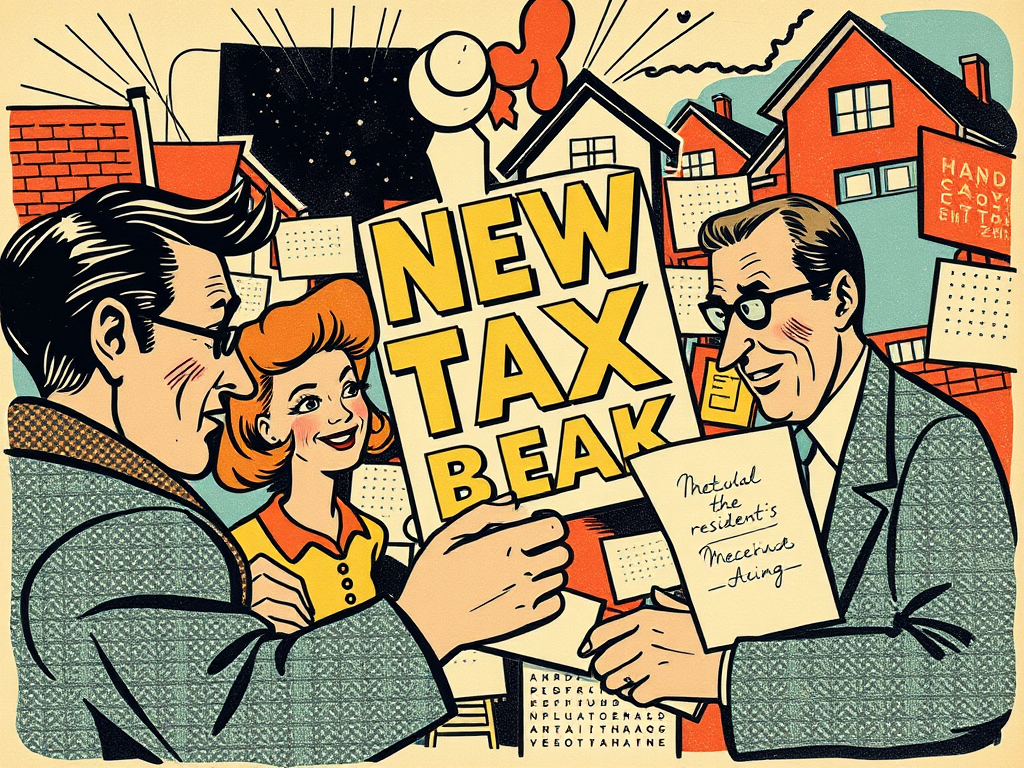
Golden Visa Programs: A Comprehensive Guide for Global Investors
Reading time: 15 minutes
Table of Contents
- Introduction to Golden Visa Programs
- The Economic Impact of Golden Visas
- Top Golden Visa Destinations
- Investment Requirements and Options
- Application Process and Timeline
- Benefits and Drawbacks of Golden Visas
- Future Outlook for Golden Visa Programs
- Conclusion
- FAQs
1. Introduction to Golden Visa Programs
Golden Visa programs have become increasingly popular among global investors seeking to diversify their portfolios and secure residency rights in desirable countries. These programs, also known as investor visas or residency-by-investment schemes, offer a unique opportunity for high-net-worth individuals to obtain residency permits or even citizenship in exchange for significant investments in the host country’s economy.
The concept of Golden Visas emerged in the aftermath of the 2008 global financial crisis as countries sought innovative ways to attract foreign capital and stimulate economic growth. Since then, numerous nations have implemented their own versions of these programs, each with distinct requirements, benefits, and investment thresholds.
As we delve deeper into the world of Golden Visas, it’s crucial to understand the intricate relationship between these programs and broader economic trends, including housing markets, labor dynamics, and global capital flows. This comprehensive guide will explore the multifaceted nature of Golden Visa schemes, their impact on host economies, and the opportunities they present for savvy investors.
2. The Economic Impact of Golden Visas
The introduction of Golden Visa programs has had a significant and often controversial impact on the economies of host countries. To fully appreciate the economic implications, we must examine several key areas:
2.1 Real Estate Market Dynamics
One of the most immediate and visible effects of Golden Visa programs is on the real estate sector. Many countries, such as Portugal, Spain, and Greece, have structured their programs to encourage investment in property markets. This influx of foreign capital has led to:
- Increased demand for high-end properties, particularly in prime urban locations
- Rising property values, which can benefit existing homeowners but may exacerbate affordability issues for local residents
- Stimulation of construction and related industries, creating jobs and economic activity
- Potential creation of real estate “bubbles” in certain markets, raising concerns about long-term sustainability
For instance, in Portugal’s popular Golden Visa program, real estate investments have accounted for over 90% of the total capital inflow, significantly impacting the country’s property market dynamics.
2.2 Foreign Direct Investment (FDI) and Capital Inflows
Golden Visa programs serve as a conduit for substantial foreign direct investment, providing host countries with much-needed capital for various economic initiatives. This influx of funds can lead to:
- Increased government revenue through application fees, taxes, and other associated costs
- Funding for infrastructure projects and public services
- Support for local businesses and start-ups through investment options in company shares or venture capital funds
- Potential reduction in national debt levels, depending on how the funds are allocated
For example, Greece’s Golden Visa program has attracted over €2 billion in investments since its inception in 2013, providing a significant boost to the country’s economy during a period of financial recovery.
2.3 Labor Market and Skill Transfer
While the primary focus of Golden Visa programs is on capital investment, they can also have notable effects on the labor market:
- Creation of jobs in sectors related to program administration, legal services, and real estate
- Potential transfer of skills and expertise if investors choose to actively participate in local businesses
- Increased demand for luxury goods and services, supporting high-end retail and hospitality sectors
- Possible displacement effects in certain job markets, particularly if investors bring in their own workforce for business ventures
It’s important to note that the labor market impact can vary significantly depending on the specific requirements and structure of each country’s Golden Visa program.
3. Top Golden Visa Destinations
While numerous countries offer some form of investor visa, certain destinations have emerged as particularly popular among global investors. Let’s examine some of the top Golden Visa programs and their unique characteristics:
3.1 Portugal
Portugal’s Golden Visa program has been one of the most successful in Europe since its launch in 2012. Key features include:
- Minimum investment options starting from €280,000 for real estate in low-density areas
- Flexibility to invest in various sectors, including property, funds, and business ventures
- Minimal physical presence requirements (7 days per year)
- Path to citizenship after 5 years
Portugal’s program has attracted significant interest, particularly from Chinese, Brazilian, and South African investors, contributing to a real estate boom in cities like Lisbon and Porto.
3.2 Spain
Spain’s Golden Visa scheme, introduced in 2013, offers:
- Minimum real estate investment of €500,000
- Options to invest in Spanish public debt or company shares
- Residency for the main applicant and immediate family members
- No minimum stay requirement to maintain the visa
The program has been particularly popular among investors from China, Russia, and the Middle East, with a focus on prime real estate in Barcelona and Madrid.
3.3 Greece
Greece’s Golden Visa program, launched in 2013, has gained traction due to its relatively low investment threshold:
- Minimum real estate investment of €250,000
- Five-year residency permit, renewable indefinitely
- No minimum stay requirement
- Option to rent out the property
The program has been a significant driver of foreign investment in Greek real estate, particularly in Athens and popular island destinations. Investors looking to buy property in greece often find the Golden Visa program an attractive option for combining investment with residency rights.
4. Investment Requirements and Options
Golden Visa programs typically offer a range of investment options to cater to different investor profiles and economic objectives. Common investment categories include:
4.1 Real Estate Investment
Property investment remains the most popular option in many Golden Visa programs. Requirements can vary significantly:
- Minimum investment amounts range from €250,000 (Greece) to €500,000 (Spain) or more
- Some countries differentiate between urban and rural property investments
- Restrictions may apply on the type of property (e.g., new vs. refurbished, residential vs. commercial)
- Certain programs allow for multiple smaller investments to reach the threshold
4.2 Capital Transfer and Financial Investments
For investors preferring non-real estate options, many programs offer alternatives such as:
- Transfer of capital to a local bank account (e.g., Cyprus requires €750,000)
- Investment in government bonds (e.g., Malta’s program includes a €150,000 government bond option)
- Purchase of shares in local companies or investment funds
4.3 Business Investment and Job Creation
Some Golden Visa programs aim to stimulate entrepreneurship and job creation:
- Investment in new or existing businesses
- Creation of a minimum number of jobs (e.g., US EB-5 visa requires creating or preserving at least 10 full-time jobs)
- Establishment of a new company or branch office in the host country
It’s crucial for investors to carefully consider the various options and their alignment with personal financial goals and risk tolerance.
5. Application Process and Timeline
While specific procedures vary by country, the general application process for Golden Visa programs typically involves the following steps:
- Initial Assessment: Determine eligibility and choose the most suitable investment option.
- Document Preparation: Gather required documentation, including proof of funds, criminal background checks, and health certificates.
- Investment: Make the qualifying investment as per program requirements.
- Application Submission: File the Golden Visa application with the relevant government authority.
- Application Review: Authorities conduct due diligence and assess the application.
- Approval and Visa Issuance: Upon approval, the Golden Visa is issued, granting residency rights.
The timeline for obtaining a Golden Visa can range from a few months to over a year, depending on the efficiency of the program and the completeness of the application. For instance, Portugal’s program typically takes 3-6 months, while Malta’s can extend to 12-14 months due to more stringent due diligence processes.
6. Benefits and Drawbacks of Golden Visas
Golden Visa programs offer numerous advantages but also come with potential drawbacks that investors should carefully consider:
6.1 Benefits
- Residency Rights: Ability to live, work, and study in the host country
- Visa-Free Travel: Access to the Schengen Area for programs within the EU
- Family Inclusion: Most programs extend benefits to immediate family members
- Path to Citizenship: Many programs offer a route to permanent residency and citizenship
- Investment Opportunities: Potential for returns on qualifying investments
- Tax Planning: Possible tax advantages depending on personal circumstances and country of choice
6.2 Drawbacks
- High Costs: Significant upfront investment and additional fees
- Risk of Changes: Programs can be modified or terminated, potentially affecting investor rights
- Limited Economic Engagement: Some critics argue that investors may have minimal interaction with the local economy
- Reputation Concerns: Association with programs that have faced scrutiny for lack of transparency
- Property Market Distortion: Potential contribution to housing affordability issues in popular areas
7. Future Outlook for Golden Visa Programs
The landscape of Golden Visa programs is continuously evolving, influenced by economic conditions, political pressures, and regulatory changes. Several trends are shaping the future of these programs:
7.1 Increased Scrutiny and Regulation
In response to concerns about money laundering and tax evasion, many countries are implementing stricter due diligence processes and more robust reporting requirements. The European Union, in particular, has called for greater transparency and oversight of Golden Visa schemes within member states.
7.2 Diversification of Investment Options
To address criticisms about the concentration of investments in real estate, some countries are exploring new investment categories. This could include options focused on green energy, technology startups, or cultural preservation projects.
7.3 Emphasis on Economic Impact
Future programs may place greater emphasis on the tangible economic benefits brought by investors, such as job creation or contributions to specific economic sectors, rather than passive investments.
7.4 Regional Competition and Program Innovation
As more countries enter the Golden Visa market, we can expect to see innovative program features and competitive pricing structures to attract investors. This could lead to more specialized programs tailored to specific investor profiles or industry sectors.
7.5 Integration of Digital Nomad Visas
With the rise of remote work, some countries may explore hybrid models that combine elements of Golden Visas with digital nomad visas, catering to high-net-worth individuals seeking flexibility in their global lifestyle.
8. Conclusion
Golden Visa programs represent a complex intersection of immigration policy, economic strategy, and global investment trends. While they offer significant opportunities for both investors and host countries, they also present challenges that require careful navigation and ongoing assessment.
For potential investors, thorough due diligence is essential. This includes evaluating personal goals, assessing the stability and reputation of various programs, and considering long-term implications beyond initial residency rights. Working with experienced legal and financial advisors who specialize in international investment and immigration can be crucial in making informed decisions.
For policymakers, the challenge lies in striking a balance between attracting foreign investment and addressing concerns about economic inequality, housing affordability, and program integrity. The future success of Golden Visa schemes will likely depend on their ability to demonstrate clear economic benefits while maintaining rigorous standards of transparency and due diligence.
As the global economic landscape continues to evolve, Golden Visa programs are likely to remain a significant feature of international investment and migration patterns. Their ongoing development will reflect broader trends in global mobility, wealth distribution, and the changing nature of citizenship in an increasingly interconnected world.
FAQs
-
Q: How do Golden Visa programs differ from traditional immigration pathways?
A: Golden Visa programs offer expedited residency rights based on significant financial investments, whereas traditional immigration pathways typically rely on factors such as employment, family ties, or humanitarian grounds. Golden Visas often have fewer language requirements and physical presence obligations compared to standard immigration routes.
-
Q: Can Golden Visa investments be leveraged or financed?
A: This varies by program. Some countries allow for partial financing of investments, while others require the full amount to be invested without leverage. It’s crucial to check the specific rules of each program, as using financing could affect eligibility or the visa application process.
-
Q: What happens if the value of my Golden Visa investment decreases after I obtain residency?
A: Generally, once residency is granted, fluctuations in investment value do not affect your residency status. However, if you plan to apply for permanent residency or citizenship later, some countries may reassess your investment at that time. It’s important to maintain the investment as per program requirements throughout the residency period.
-
Q: Are there any tax implications of obtaining a Golden Visa?
A: Tax implications can be significant and vary depending on the country of the Golden Visa, your country of origin, and your personal circumstances. Some countries offer tax incentives to Golden Visa holders, while others may require worldwide income reporting. It’s essential to consult with a tax professional familiar with international tax law before making any decisions.
-
Q: Can I apply for multiple Golden Visa programs simultaneously?
A: Yes, it is generally possible to apply for multiple Golden Visa programs at the same time. However, this approach requires careful planning and significant financial resources. Keep in mind that some countries may require you to relinquish other residencies or citizenships when granting their Golden Visa or subsequent citizenship.

Article reviewed by Jean Dupont, Institutional Investment Advisor | ESG & Impact Investing Pioneer | Aligning Profit with Purpose for Pension Funds, on March 22, 2025





